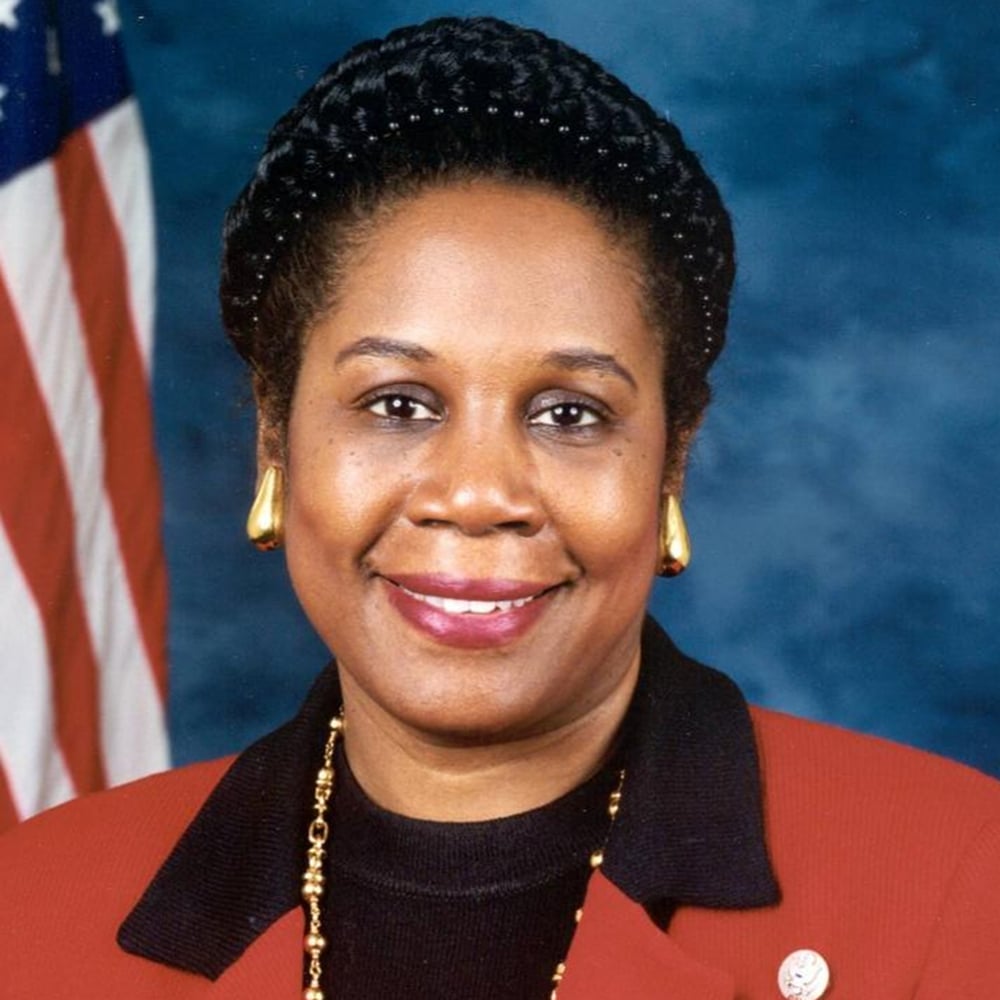I think we are finally getting to the end of the Chron’s primary endorsements. We had the Senate and Tax Assessor, there are these four Congressional endorsements, all of which ran on Saturday, and I think the only races left may be the HCDE primaries. We’ll see, I’m probably forgetting something. Anyway, let’s go through these:
Rep. Sheila Jackson Lee for CD18.
Jackson Lee, one of the most senior Democrats in Congress, is consistently ranked as one of the most effective lawmakers. In 2019, according to GovTrack.us, she cosponsored 772 bills and resolutions and introduced another 38.
Last month, the president signed into law a bill authored by Jackson Lee and U.S. Sen. John Cornyn, a Republican, commissioning a federal study for a 51-mile Emancipation Trail between Galveston and Houston — a rare bipartisan effort in this politically polarized atmosphere. She has also taken up the late John Conyers’ effort to create a commission to study reparations, an effort applauded by this editorial board.
That record earns Jackson Lee our endorsement in the Democratic primary for Houston’s 18th Congressional District.
It is worth noting that Jackson Lee faces six challengers in the primary, a sign that many in her district are hungry for change.
[…]
Jackson Lee would do well to listen to her opponents’ concerns and the issues for which they are advocating.
I question the logic behind the claim having multiple opponents in this primary is “a sign that many in her district are hungry for change”. Maybe if she loses the primary or is forced into a runoff, that would be such a sign. John Cornyn had seven challengers in the 2014 Republican primary, which he wound up winning with 59% of the vote. Anyone with the right paperwork and a check for the filing fee can run for office. I don’t know what the number of candidates has to do with the electorate’s desire for change. And in the brief recitation (that I have omitted from this excerpt) of her opponents’ concerns and issues, I didn’t see anything that Jackson Lee would have been opposed or even indifferent to. Maybe be a little more specific here? Just a thought.
With hopes of flipping a seat held by a high-profile Republican, the question of “electability” will be a top priority for Democratic voters in the March 3 primary for House District 2.
That would make Houston lawyer, political activist and former Beto O’Rourke adviser Sima Ladjevardian the logical choice.
A late entry in the race, filing just hours before the Dec. 9 deadline, Ladjevardian still reported the most money raised and cash on hand at the end of the year. She also has the best potential for raising the cash needed for the Nov. 3 election face-off with incumbent Dan Crenshaw, who is unopposed in the Republican primary.
National pollsters and analysts put the race in the “likely Republican” category, but Crenshaw’s 53 percent vote in 2018 suggests he is not invulnerable.
The other Democratic challengers are Elisa Cardnell, a Navy veteran, a single mom and high school math and physics teacher, and Travis Olsen, who resigned his job with the Department of Homeland Security last year in protest of the administration’s family separation policy and other immigration issues.
Plenty of primary endorsements come down to this sort of practical assessment – these candidates are all roughly equivalent in terms of their positions and their experiences, so which one do we think will have the best shot at winning? I feel like it’s relatively uncommon for the Chron to state it this baldly, but there it is. Sima (*) has indeed been a brisk fundraiser, which is no doubt the reason why the DCCC added CD02 as a target. It’s easy to understand the rationale for all this, but it has to be a little frustrating for the candidates, not just for someone like Elisa Cardnell, who has been in this race for almost a year and hasn’t done too badly in fundraising herself while also making the “electability” argument based on her status as a Navy veteran, but also for Sima, whose own qualities get de-emphasized due to her ability to bring in money. It’s important to remember that the main reason for this rationale, whether you agree with it or not, and whether you agree with this particular conclusion to it or not, is that all three candidates are well-qualified and appealing, and we have to find a distinction somewhere.
(*) I recognize that it is often patronizing to refer to candidates, especially female candidates, by their first names. In this case, the candidate is doing that branding herself, on her domain name and campaign materials. I’m sure that’s in large part because “Ladjevardian” is much longer and more intimidating to pronounce and spell than “Sima” is – for sure, “Sima” fits quite nicely on a yard sign or T-shirt – and in part because there’s a well-documented penalty that candidates who have “funny” or “foreign-looking” surnames suffer. All this is a much more involved discussion for another time, I just wanted to acknowledge it.
Laura Jones and Elizabeth Hernandez see themselves as “regular people” who decided to do more than just complain about things. They each independently decided it was time to run for Congress.
For now, that means the two Democrats are trying to get their message out to voters in a solidly Republican House District 8 that sprawls across all or part of nine counties. They have little financial resources and almost no name recognition.
The winner of the March 3 Democratic primary will advance to the November election, almost certainly to face 12-term incumbent Kevin Brady, the top-ranking Republican on the powerful Ways and Means Committee. Brady was re-elected in 2018 with 73 percent of the vote.
Brady reported having more than $1 million in his campaign account at the end of 2019. Jones reported a little less than $2,000 and Hernandez had $0.
[…]
Jones, 42, said she has also made a point of meeting with mayors and other elected officials across the district, including many Republicans, to talk about these “regular people” problems.
It is that work and her experience in county politics that makes Jones the best choice in this Democratic primary.
It’s easy to look at a race like this and say it’s pointless, it’s hopeless, let’s put our energy and resources into races we can win. I get that, and I agree that a Democratic win in CD08 would be a monumental upset. But I’d also argue that running these races, with quality candidates, is important in their own fundamental way. For one, we can’t ever abandon any part of the state or subset of the population, not if we truly believe that our values and beliefs are beneficial to all. For another, things do change over time – see, for example, the former Republican stronghold known as Fort Bend County – and it’s so much better to have been a presence all along. At its most practical level, we Democrats need to give all our compatriots a reason to vote. We’re lucky to have people like Laura Jones and Elizabeth Hernandez doing that work in places where the challenges are greater and the rewards are not as apparent.
Democratic voters in Texas’s 10th Congressional District have a difficult choice to make, as the three candidates in the primary race — Shannon Hutcheson, Pritesh Gandhi and Mike Siegel — all offer compelling reasons why they should be selected to take on seven-term U.S. Rep. Mike McCaul.
Hutcheson, a lawyer who has represented Planned Parenthood, impressed us with her passion for education and bringing affordable health care to Texas families. Gandhi, a doctor and Fulbright scholar, protested the treatment of migrant children at the border and founded Doctors Against Gun Violence.
All promise solutions to issues such as climate change, gun control and health care, but in this race, we give the edge to Siegel.
His efforts in 2018, a race he lost by 4 percentage points to the powerful incumbent, convinced Democrats that the district was within grasp. He formed that challenge on a grassroots appeal that built upon his record of service as a teacher and assistant city attorney in Austin, where he led the charge in the suit against Texas’s anti-immigrant SB 4 law. During his campaign, he succeeded in protecting the voting rights of students at the historically black Prairie View A&M University.
“As Democrats, the way we’re going to win in Texas is by establishing this reputation that we will fight for the people here,” he told the Editorial Board.
Interestingly, this is in some ways a reverse of the endorsement in CD02, in that Siegel has raised the least money of the three candidates. Siegel did run before, and that’s valuable experience to have, and unlike in 2018 this race has been on the radar from the beginning, so the considerations are a little different. I’m just noting this in part because the distinction one has to find among otherwise equally attractive candidates doesn’t have to be about money. Other things can serve as a tie-breaker, too.





In my opinion if everyone represented their district like Shelia Jackson Lee represented her district they would never get voted out. She will always have my support.
From the She-Jac endorsement:
“….a federal study for a 51-mile Emancipation Trail between Galveston and Houston….”
What, exactly, are they going to study? Absolutely nobody is going to have a problem with some historic/informational signs being erected, except maybe for drunks who will run them over and mowing crews that will have to mow around them. Slap up some historic trail signs, or historic markers, just like you see all around Texas. How much money is going to be wasted on this study? How many signs are needed? One per mile? OK, at $ 500 per sign installed, that’s a little over $ 25 grand. It would probably be even cheaper to have the signs made by the prisoners in the sign shop in Huntsville, and installed by TXDOT. It also seems like 51 signs is a little excessive. Ten signs ought to be plenty for this deserving project. So, about $ 5,000 all in, and I bet Naomi Mitchell Carrier would be honored to choose those 10 locations at no cost to the taxpayers.
How much is being spent on the study?
Pingback: Chron overview of the CD02 primary – Off the Kuff